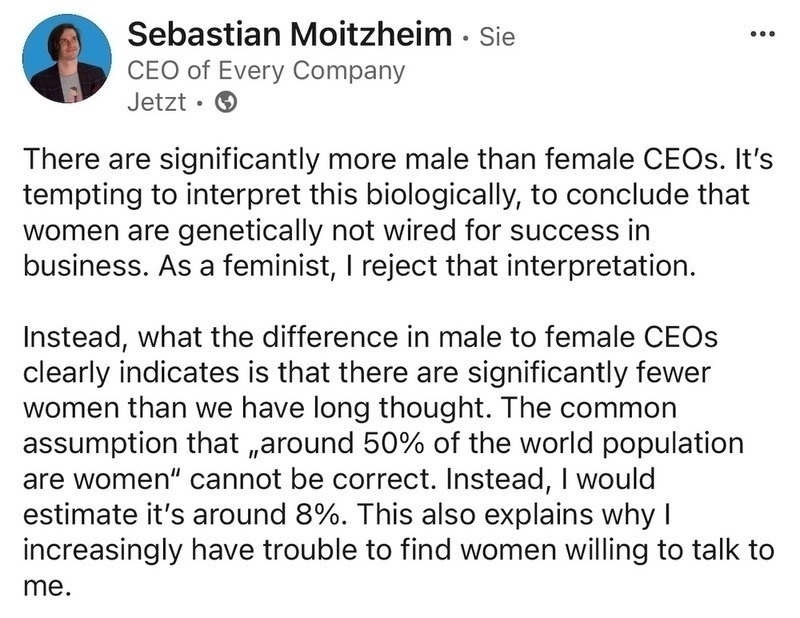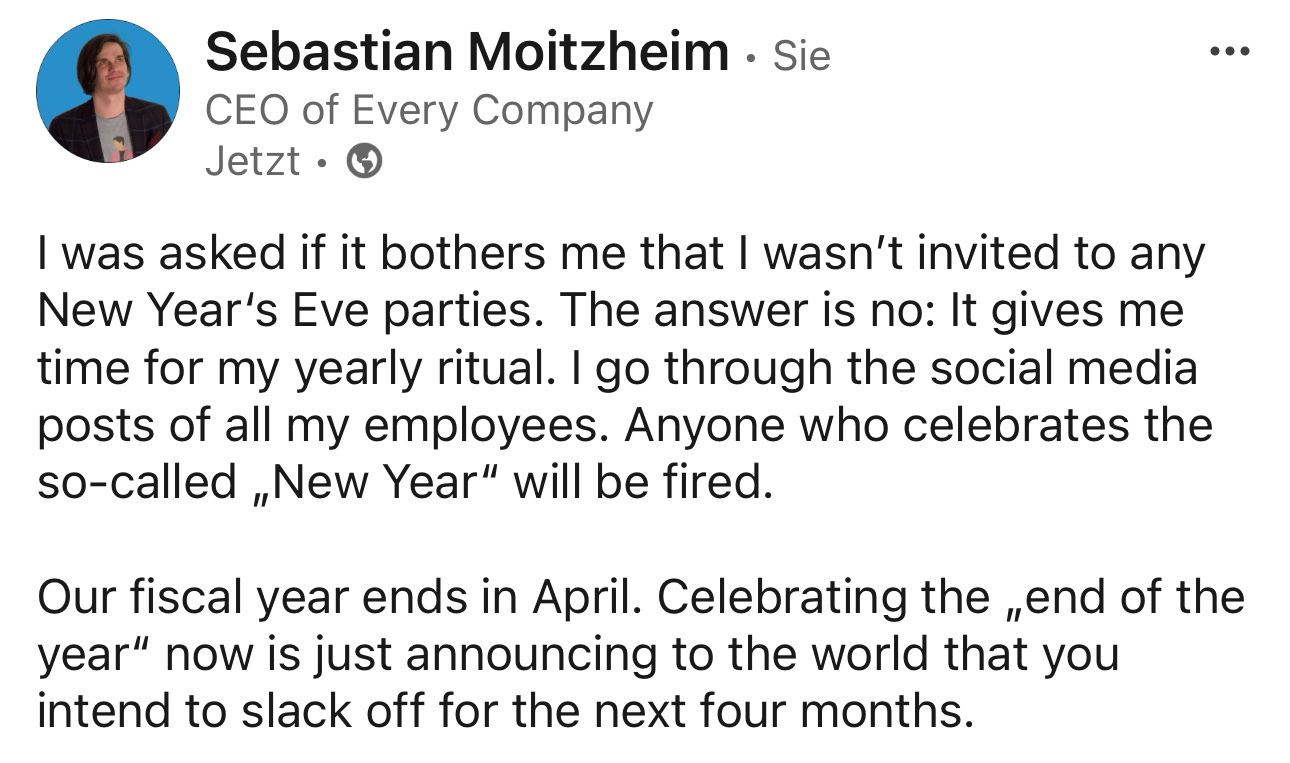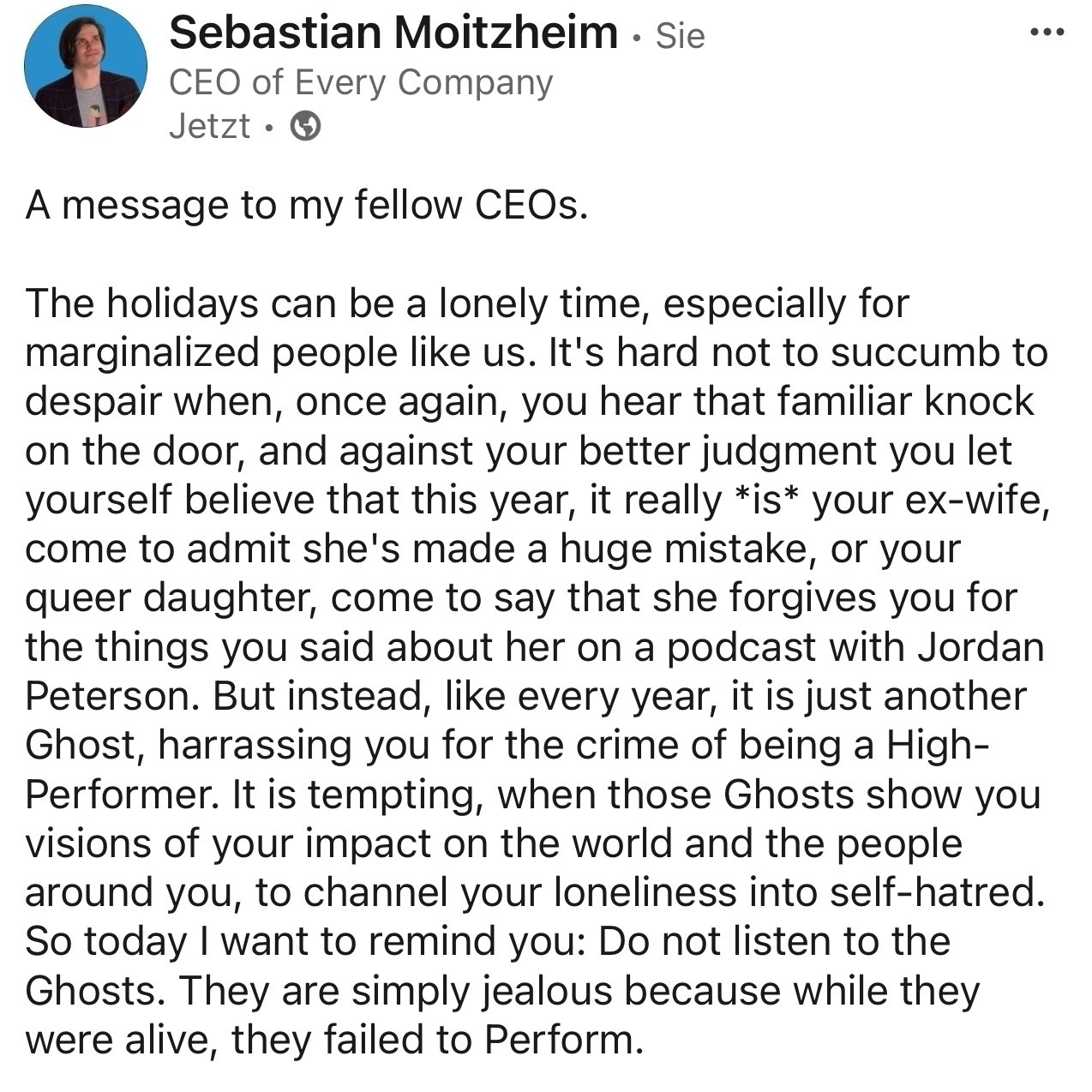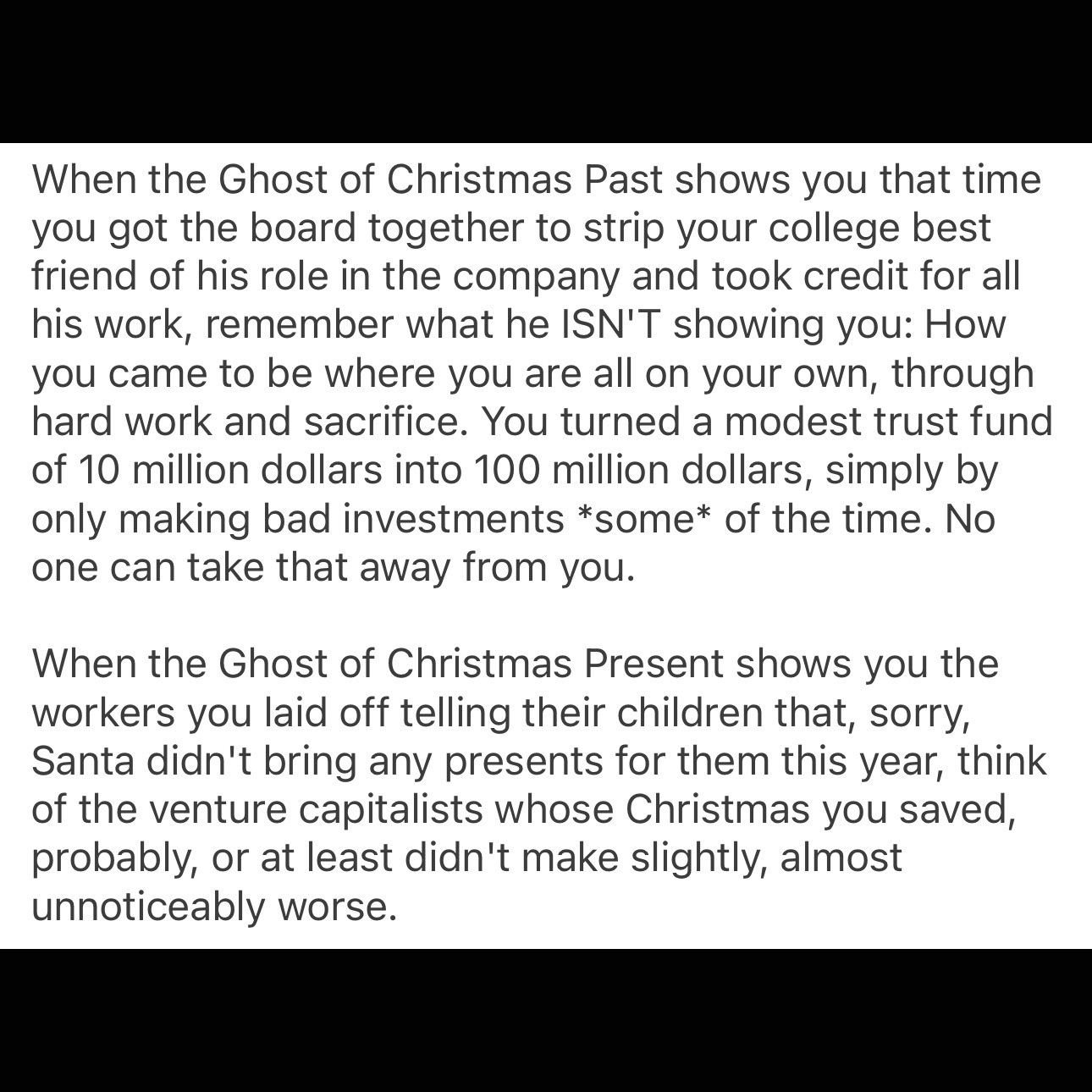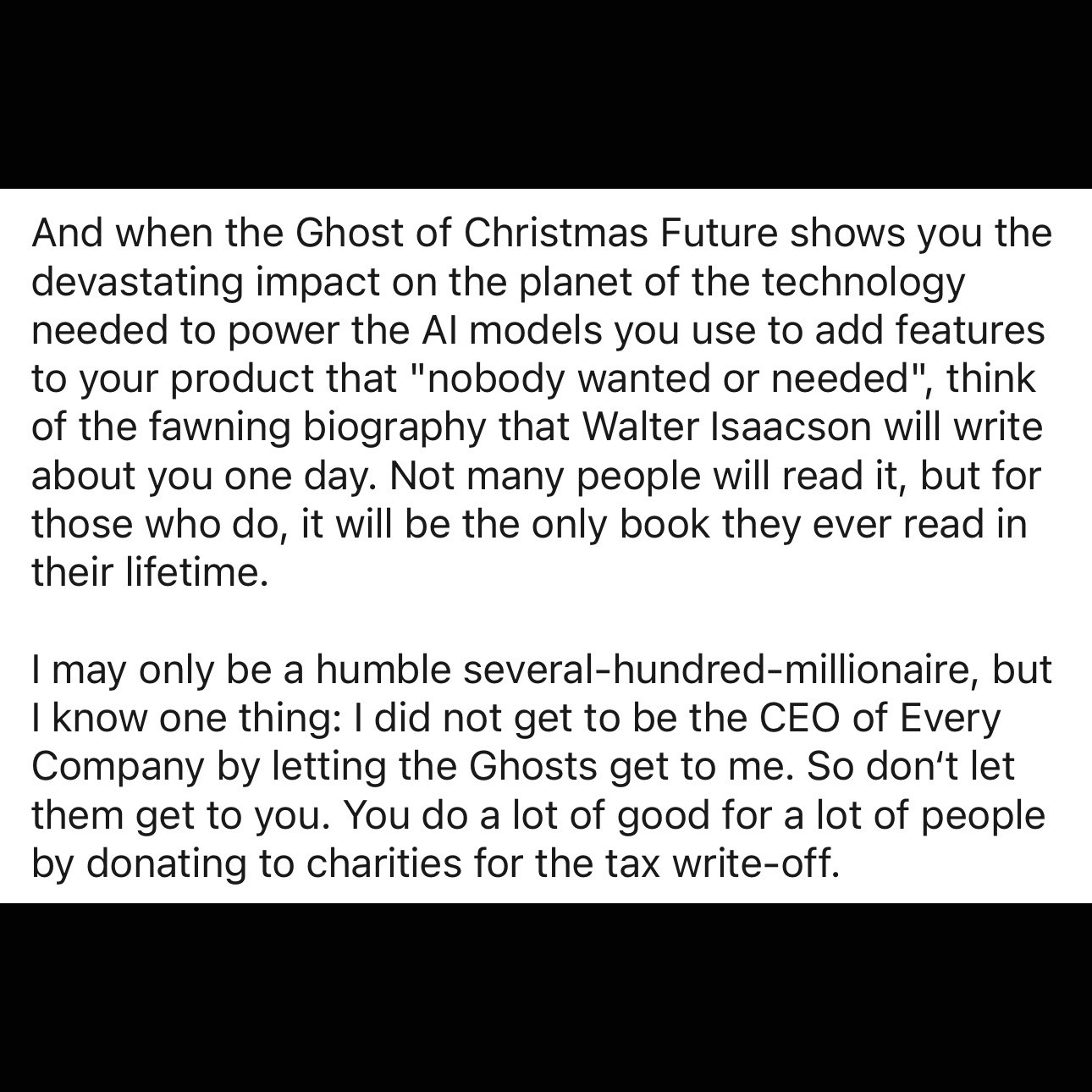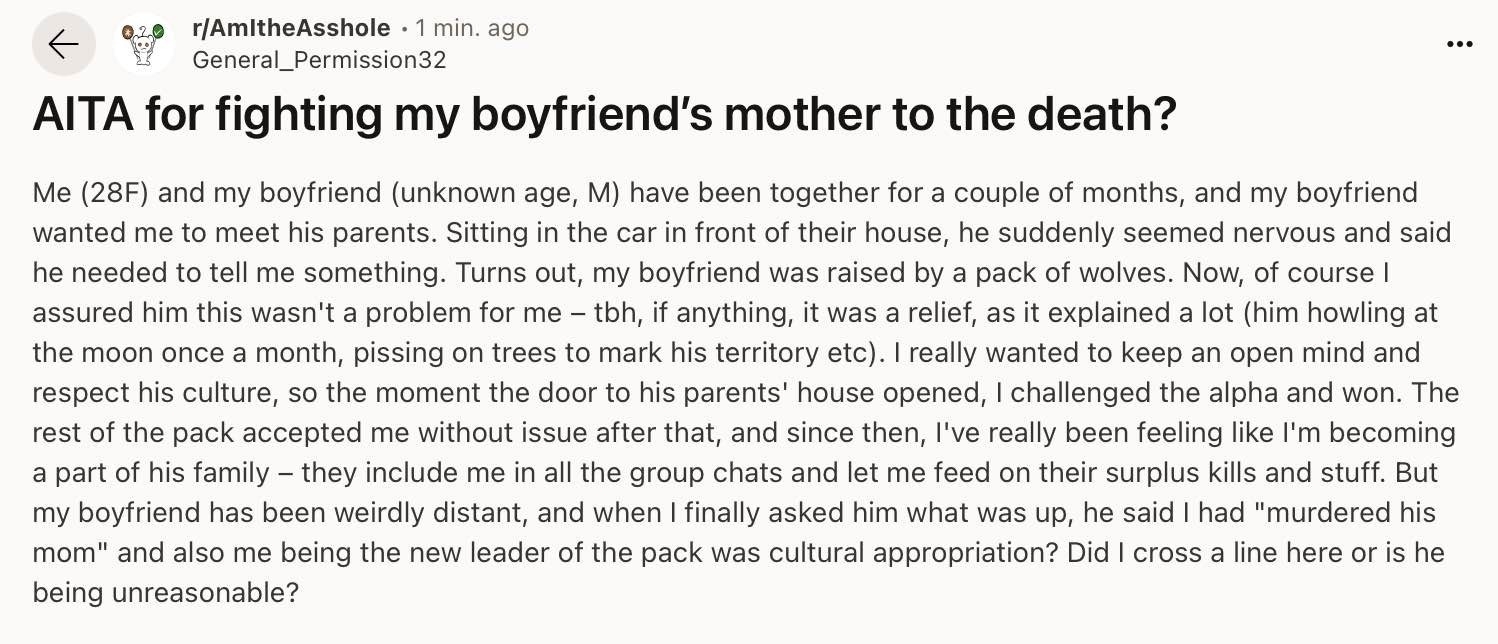Category: Microposts
Du siehst alle Beiträge aus dieser Kategorie, beginnend mit dem neuesten.
The escalating attacks on Wikipedia from Elon Musk and other powerful figures on the American right follow a familiar pattern. First come the claims of bias, supported by cherry-picked or misrepresented examples. Then the demands for “balance”, which in practice mean giving equal weight to fringe views or demonstrably false claims. When these demands are refused, the attacks shift to the platform’s legitimacy itself: its funding, its governance, its leaders, and its very right to exist as an independent entity.
Molly White schreibt über Elon Musks Kreuzzug gegen Wikipedia, nimmt die Argumente von Musk und anderen rechten Trollen ernster, als sie es verdienen, und verteidigt Wikipedia dagegen, inklusive Einblicken in die internen Diskussionen und Kritik aus der Community selbst.
Wusstet ihr dass Viggo Mortensen sich als er gegen den Helm tritt zwei Zehen gebrochen hat? Ja, die Figur „Aragorn“ kommt im Buch gar nicht vor und sollte auch nicht im Film sein, Viggo ist einfach ins Bild gelaufen und hat angefangen gegen Sachen zu treten und aus Angst, wegen der Verletzung verklagt zu werden, haben die Produzenten eine Figur für ihn erfunden.
Kyle Mooney über SNL: „[W]e must all agree it’s not a healthy place to be.“
Mooney also recalled that SNL producer Erik Kenward once suggested that in “20, 30, 40 years, there might be some sort of study about PTSD associated with people who worked at that show, because it is such an intense onslaught,” adding that “it’s definitely not good for you. There’s no way it is.”
Basierend auf den Ausschnitten, die ich auf TikTok sehe, stellt dieser Podcast von Sophie Passmann und Joko Winterscheidt vor allem die Frage „Kann man ironisch reich sein?“ und beantwortet sie mit einem klaren Nein.
Me absolutely demolishing Hemingway in both the „saddest“ AND „shortest“ categories:
„For sale: baby“
We constrain our imaginations when we subordinate our creations to names owned by fascist tycoons. Imagine the author of a book tellling people to “read my Amazon”. A great director trying to promote their film by saying “click on my Max”. That’s how much they’ve pickled your brain when you refer to your own work and your own voice within the context of their walled garden. There is no such thing as “my Substack”, there is only your writing, and a forever fight against the world of pure enshittification.
Anil Dash erklärt, warum ihr euren Newsletter nicht euren „Substack“ nennen solltet.
